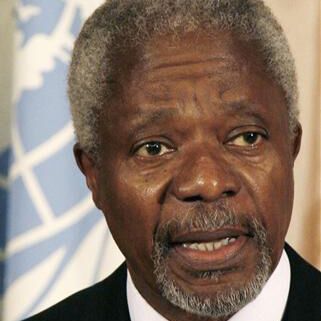
Kofi Annan: Security Council Must Change
Representatives of 118 under-developed countries—many of which are rabidly anti-American—used the September 11–16 Non-Aligned Movement summit in Havana, Cuba, as a forum for anti-Israel and anti-American rhetoric and statements. Associated Press commented that “the top priority [at the summit] seemed to be balancing U.S. veto power on the UN Security Council” (September 17).
“The U.S. is turning the Security Council into a base for imposing its politics,” Iran’s President Mahmoud Ahmadinejad complained. “Why should people live under the nuclear threat of the U.S.?”
Joining forces with such countries as Iran, North Korea and Cuba—no friends of the United States to be sure—Secretary General Kofi Annan endorsed the call for reform of the United Nation’s Security Council to reflect the changing world. On September 18 Annan told the heads of states:
As you know, the Security Council must reform—for the sake of the developing world, and for the sake of the United Nations itself. The perception of a narrow power base hanging on five countries is difficult to sustain and it risks leading to an erosion of the UN’s authority and legitimacy …. I have in the past described this as a democracy deficit. It must be corrected.
Annan purports that a more democratic Security Council will help solve UN problems, but it is woefully ignorant to claim adding new seats would improve the Council, when the Council can’t agree on issues such as Iran’s nuclear program with the five permanent and 10 elected members it already has. More members will only further cripple the UN’s ability to agree on resolutions and therefore will reduce its ability to respond to and resolve world crises. Even more ironic is that many of the developing nations that are crying out for more democratic representation in the Security Council are the same nations suppressing democracy in their own nations, such as Communist Cuba, where Annan spoke these words.
Fact is, despite rhetoric about the desire for increased “democracy” within the UN, such moves are merely a pretext for marginalizing the U.S.’s influence not just in the UN, but on the world scene. As the Trumpet wrote in May 2003, “The United Nations, an organization created largely by the U.S. to solicit the world’s help in containing dictators, [is] now being used by the world to contain the U.S.”
